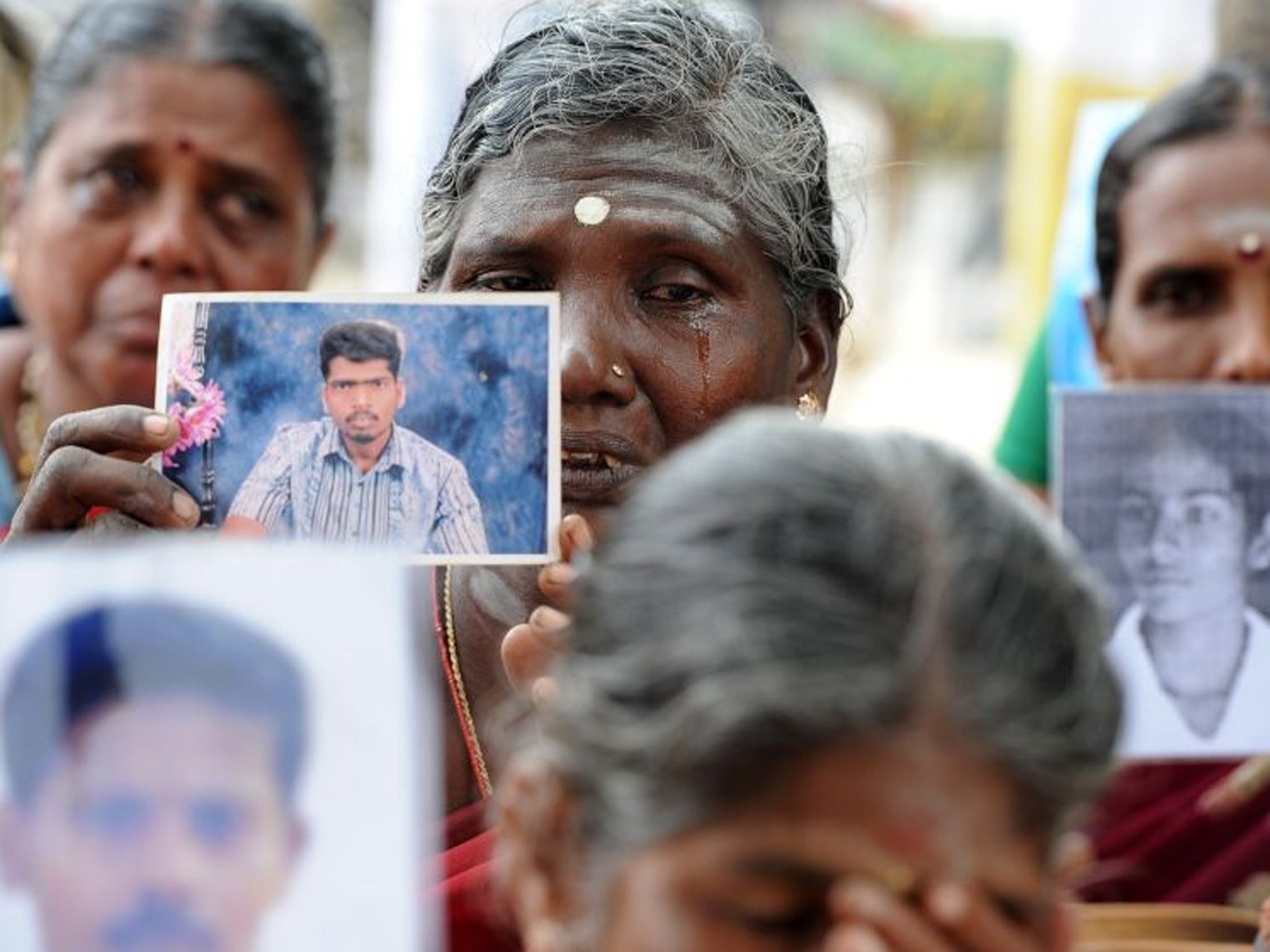David Cameron accuses Ed Miliband of 'rank hypocrisy' over Sri Lanka boycott call
PM said Labour had been in power when country was approved as Commonwealth summit host - months after bloody government crackdown there

Your support helps us to tell the story
From reproductive rights to climate change to Big Tech, The Independent is on the ground when the story is developing. Whether it's investigating the financials of Elon Musk's pro-Trump PAC or producing our latest documentary, 'The A Word', which shines a light on the American women fighting for reproductive rights, we know how important it is to parse out the facts from the messaging.
At such a critical moment in US history, we need reporters on the ground. Your donation allows us to keep sending journalists to speak to both sides of the story.
The Independent is trusted by Americans across the entire political spectrum. And unlike many other quality news outlets, we choose not to lock Americans out of our reporting and analysis with paywalls. We believe quality journalism should be available to everyone, paid for by those who can afford it.
Your support makes all the difference.David Cameron accused Ed Miliband today of "rank hypocrisy" for demanding that Britain should have boycotted the Commonwealth summit in Sri Lanka.
The Prime Minister said Labour had been in power in 2009 when Sri Lanka was approved as host - months after the final offensive in the civil war which saw up to 40,000 Tamil civilians killed in a bloody crackdown by government forces.
Mr Cameron was speaking on the opening day of the Commonwealth heads of government meeting, attended by Prince Charles and hosted by Sri Lankan president Mahinda Rajapaksa.
The Labour leader has urged Mr Cameron to join leaders of India, Canada and Mauritius in boycotting the summit in protest at President Rajapaksa's refusal to hold an independent inquiry into alleged war crimes.
But Mr Cameron told journalists today: "This is an organisation that of course has its difficulties, has its problems, is imperfect, but it's right to take your chair, to make your arguments, to progress your agendas and if you weren't there those things would go backwards rather than forwards.
"I think there is rank hypocrisy really from Labour to call for non-attendance at a Commonwealth heads of government meeting that they helped fix when they were in government.
"So I think it is absolutely extraordinary behaviour - in 2009 they effectively agreed the meeting should be held in Sri Lanka and they're just playing politics and it's completely cynical."
Mr Cameron was speaking as he prepared to travel to the north of Sri Lanka today to meet Tamil journalists and visit a welfare village to speak to civilians still affected by displacement four years since the end of the civil war.
He said he hoped his visit - hours before an expected showdown with President Rajapaksa over the continuing human rights concerns - "helps the people in the north of the island have a voice".
Asked whether anyone he would speak to today would be in fear of reprisals, he said: "I am sure there will be difficulties. But that, in a way, will tell its own story. If that's the case that will be a demonstration of the difficulties in terms of freedom of speech and freedom of assembly, freedom of movement and the key freedoms that we value." He admitted that he may not be able to "speak to as many people as you would like".
On his meeting with President Rajapaksa, due in Colombo later today, he said: "The war has been won, and that's a huge relief in Sri Lanka, but as Churchill said, in victory, magnanimity. And Rajapaksa has an opportunity, having won the war, to show real generosity and reconciliation to build a cohesive country where everyone feels they have a say. He is able to do that."
Join our commenting forum
Join thought-provoking conversations, follow other Independent readers and see their replies
Comments